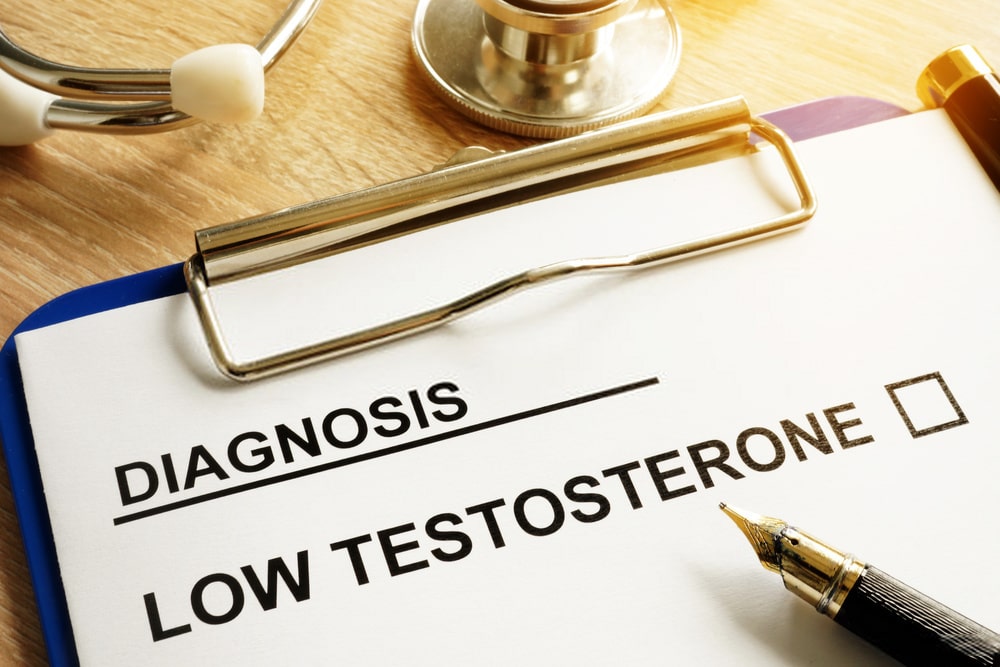Testosterone is not the primary fuel for male libido and performance. Nevertheless, low testosterone levels will reduce your ability to have satisfactory sex. Lack of libido and erectile dysfunction are sexual problems caused by low testosterone. If low testosterone is the main cause, treating it will help.
What are Erectile Dysfunction and Low Testosterone level?
Erectile Dysfunction is a prevalent condition that influences millions of men and often is directly connected to Low testosterone (Low T). There are numerous common causes of ED, as well as numerous latent symptoms.
If you’ve been diagnosed with Erectile Dysfunction, it may help to understand that you aren’t lonely. According to the research, as many as 30 million men in the United States experience ED.
Low Testosterone Levels
Low testosterone is also called hypogonadism and can appear during fetal development or childhood. Hypogonadism can cause various problems. In adults, it can change physical characteristics such as reduced hair growth and hinder normal reproduction.
Testosterone is a crucial male hormone. When a man’s testosterone is lower than normal, low testosterone occurs. It can directly affect fertility by causing reduced sperm production and indirectly affect fertility by reducing libido and causing erectile dysfunction.
What Causes Low Testosterone in Men?
Aging is one of the predisposing factors for low testosterone levels. As men age, the testosterone level decreases by about 1% every year after 35. Consequently, around 10% suffer from low testosterone levels every ten years.
Some men experience a more significant loss of testosterone levels for several reasons. Lower testosterone levels will help probable urge men to weight gain, lack of energy, and diminished bone mass.
The analysis found a deep link between low testosterone and Male Infertility. Erectile dysfunction is not an isolated problem. However, it serves as a host of other psychological issues such as depression. Low Testosterone levels and impotence hit men’s reproductive drive.
How does low testosterone cause erectile dysfunction?
The release of testosterone triggers erections. Testosterone encourages sufficient blood flow to the male reproductive organ. A decreasing blood flow can result in an inability of the penis to sustain ample erection for penetration. Low testosterone and impotence can also result in low libido and poor sexual drive.
Low Testosterone and Erectile Dysfunction
Surprisingly, low testosterone levels by themselves unusually cause ED or Male Infertility. Low testosterone levels alone without other health problems– account for a small opposition of men with ED.
Erectile problems are usually caused by atherosclerosis-hardening of the catheter. If injured, the smaller blood vessels supplying the penis will no longer expand to obtain the stable flow required for a firm erection. Excess Smoking, high cholesterol, diabetes, and high blood pressure are the four major causes of atherosclerosis and erectile dysfunction.
While moderate testosterone levels may influence your level of sexual arousal, it is an issue that might be connected to ED; If you feel little or no sexual desire, they don’t seem to be responsible for any fluctuations in blood flow to the penis. Although researchers have not completely assumed the accurate relationship between testosterone and erectile dysfunction, they agree on two points.
The primary is that you don’t require normal testosterone levels to get or maintain an erection throughout sex.
The second is that, behind a definite point, higher testosterone levels don’t look to point to more healthy, frequent, and dependable erections.
Erectile Dysfunction and Low Testosterone Risk Circumstances
While low testosterone doesn’t necessarily cause erectile dysfunction, many potential contributing factors for both conditions overlap.
For example, low testosterone levels are linked with obesity, high blood pressure, heart disorder, and type 2 diabetes. These are also prevalent risk factors for erectile dysfunction, which affect the blood flow to the penis and affect your sexual performance.
If you’ve been diagnosed with any of these hazard factors and have ED, you may want to examine talking to your doctor about checking your testosterone levels.
Treating ED and Low Testosterone
If you have ED but normal testosterone levels, your health care provider may start treatment with lifestyle changes. These include dropping weight, exercising, not smoking, and avoiding alcohol and drug misuse.
Yet, if you have ED with average testosterone levels, you’ll likely mark more of an enhancement by using tadalista medication. The next choice for treatment is usually a drug called a phosphodiesterase-type five inhibitor (PDE-5 inhibitors).
The principal of these was a medicine called Vidalista and Vidalista 60. Today, the PDE-5 inhibitors work much faster and more reliably than testosterone to treat ED.
If you have low T with symptoms that include ED, you may get testosterone therapy to increase your sex drive, improve your mood, and increase muscle and bone strength. Testosterone may also promote ED, but testosterone is not the medication of preference for ED.
One alternative would be to take both testosterone and a PDE-5 inhibitor for low Testosterone with ED. Testosterone may boost your desire for sensuality, while a PDE-5 inhibitor Vidalista 40 improves your erection. However, a study discovered that adding testosterone to Viagra for low T and ED men did not make much difference.
Ultimately, know that ED and low Testosterone could indicate a more difficult medical situation, such as heart disease. If you have low T or ED symptoms, talk with your physician about all the possible causes.


